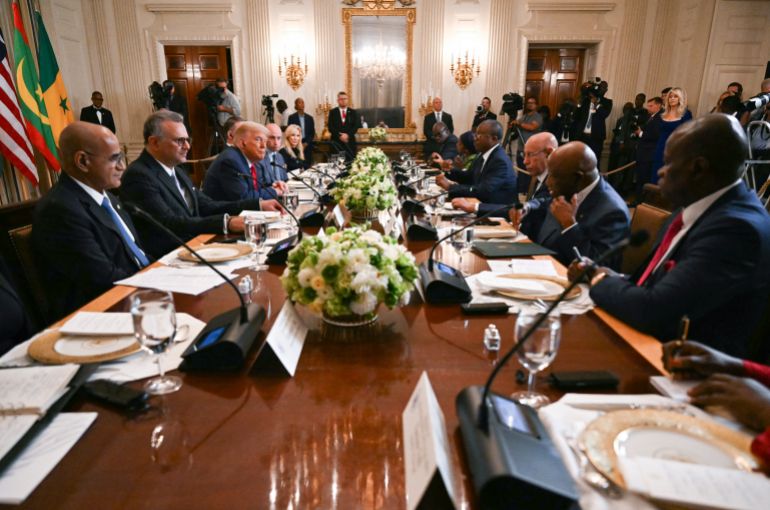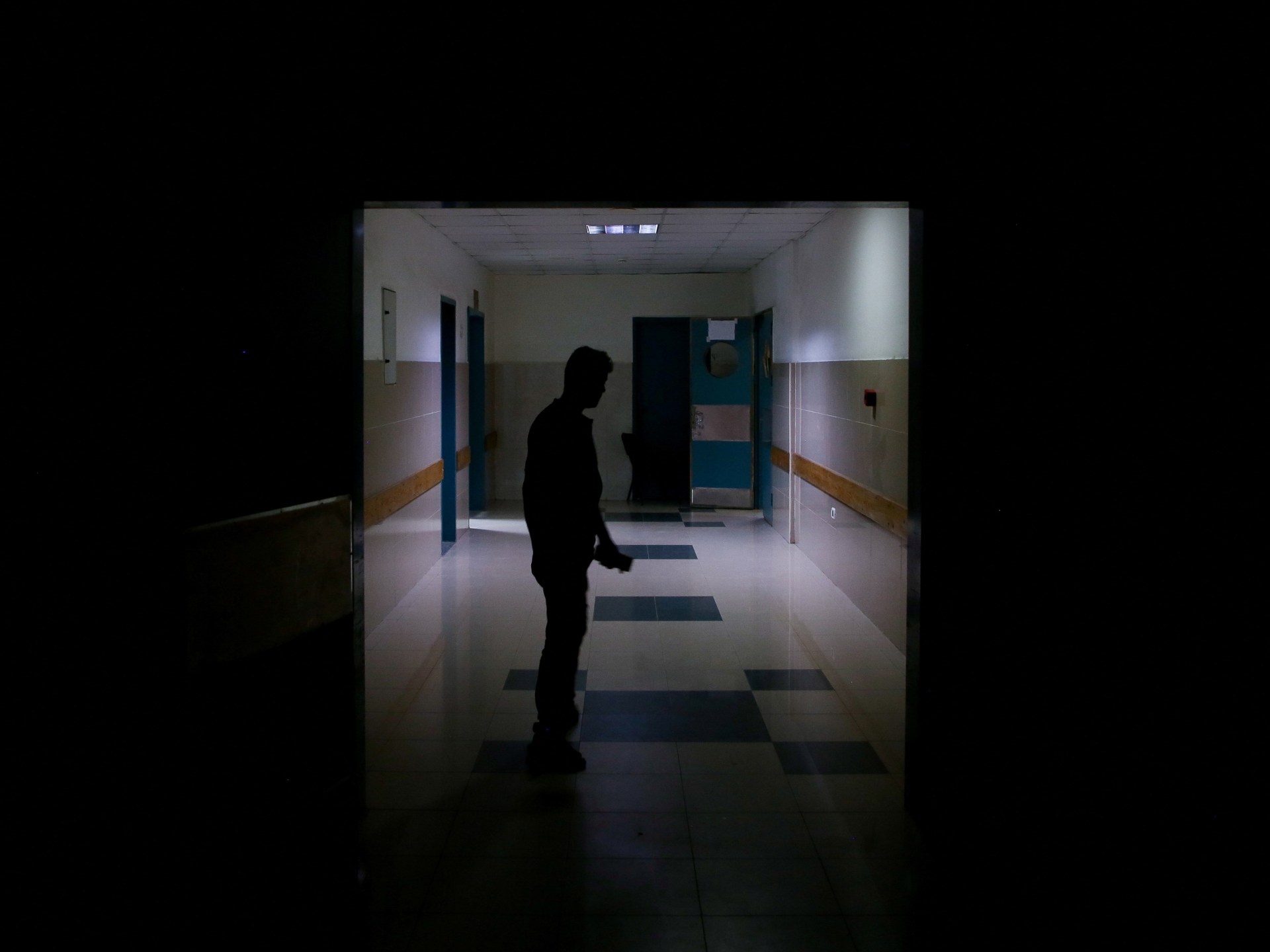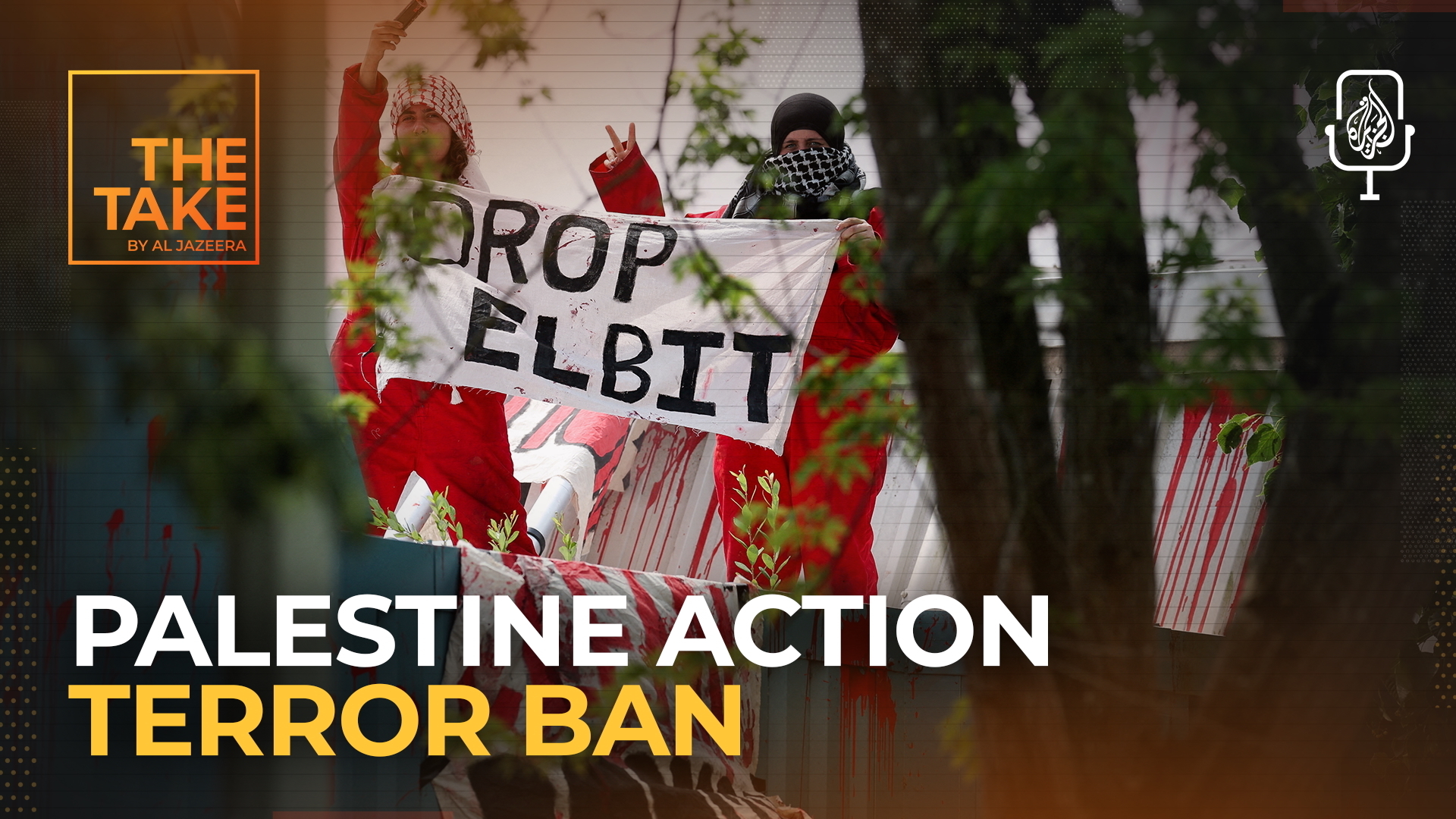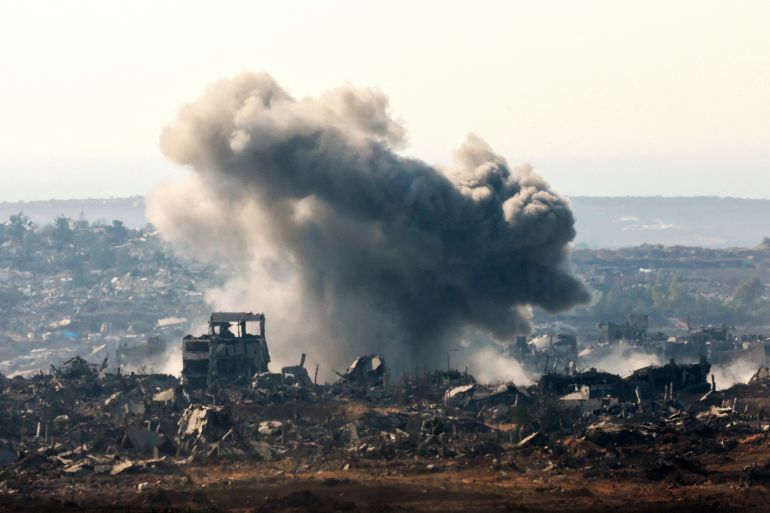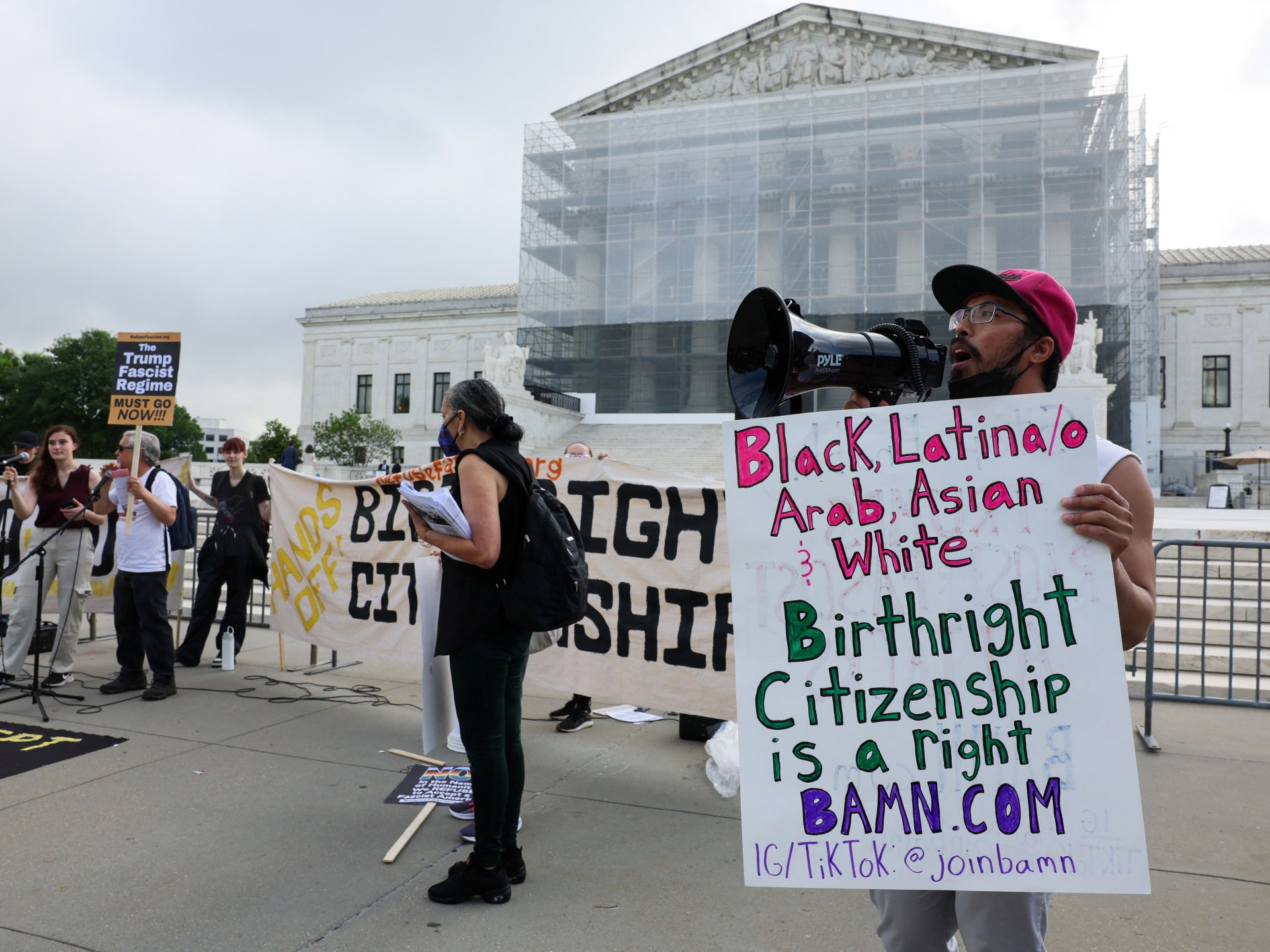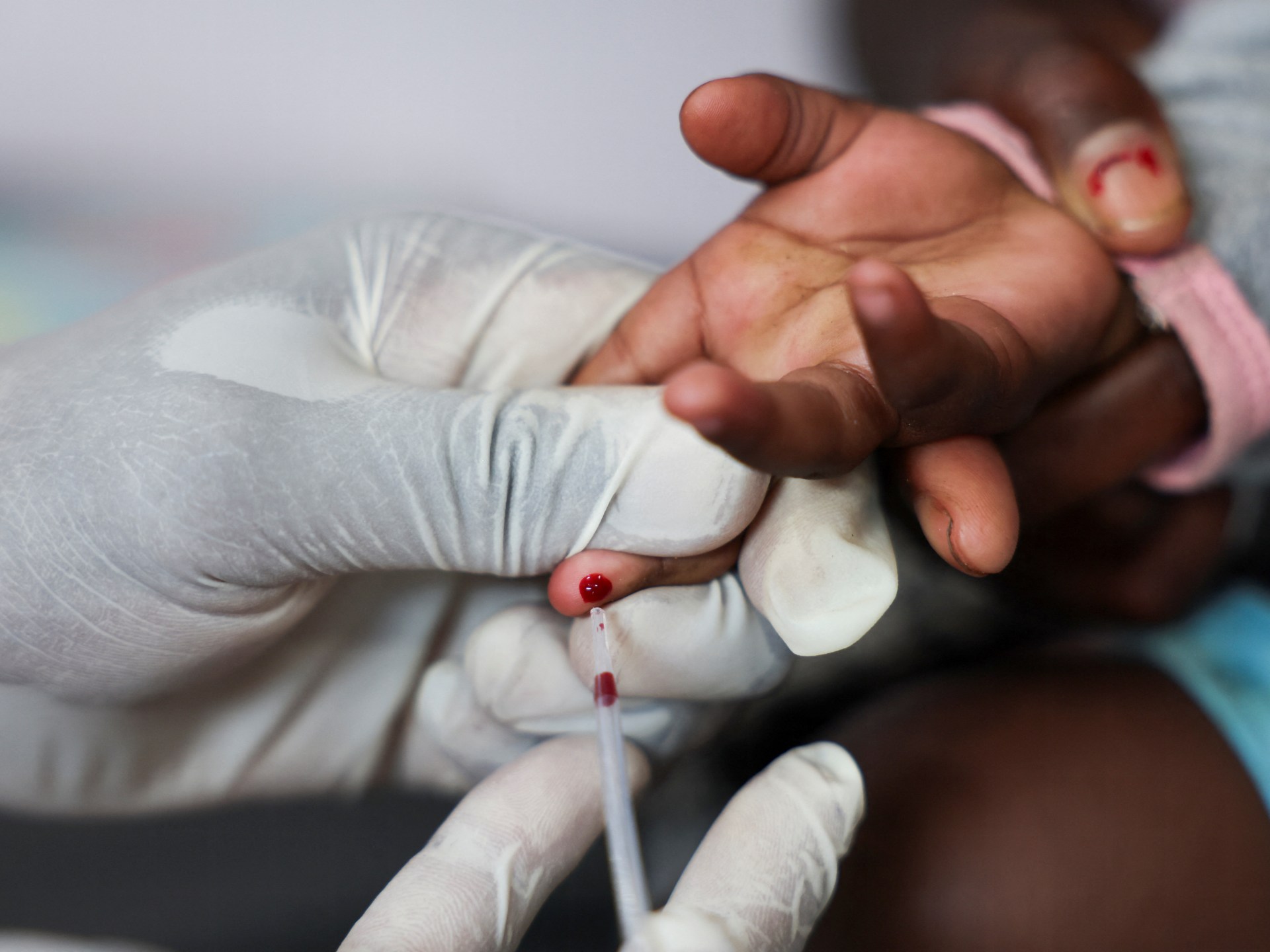Liberians are expressing confusion and anger after United States President Donald Trump praised the English skills of their country’s President Joseph Boakai.
“Such good English,” Trump said to Boakai at the White House on Wednesday, with visible surprise. “Such beautiful English.”
English has been the West African nation’s official language since the 1800s. But Trump did not stop there.
“Where did you learn to speak so beautifully?” he continued, as Boakai murmured a response. “Where were you educated? Where? In Liberia?”
The exchange took place during a meeting in the White House between Trump and five West African leaders, amid a pivot from aid to trade in US foreign policy.
Liberia has had deep ties with Washington for centuries, stemming from the drive to relocate freed slaves from the US.
Foday Massaquio, chairman of the opposition Congress for Democratic Change-Council of Patriots, said that while the remarks were typical of Trump’s engagement with foreign leaders, what some saw as a condescending tone was amplified by the fact that the leaders were African.
“As a matter of fact, it also proves that the West is not taking us seriously as Africans,” he said. “President Trump was condescending; he was very disrespectful to the African leader.”
Kula Fofana, spokesperson for Boakai’s office, told the Associated Press news agency: “I believe that as journalists, it is important to focus on the substantive discussions at the summit.”
“We find it a good thing that President Trump is commending our president for his way of speaking and the clarity he provided during the meeting,” she added. “However, we look forward to achieving the substantive request specifically engaging in a stronger bilateral relationship with the United States.”
Sara Beysolow Nyanti, Liberia’s foreign minister, said on X that “President Trump’s comment on Boakai’s ‘beautiful English’ simply acknowledged Liberia’s familiar American-rooted accent and no offence was taken”.
“Our linguistic heritage is deeply American‑influenced, & this was simply recognised by Donald Trump. We remain committed to strengthening Liberia‑US ties, built on mutual respect, shared values, and meaningful partnership,” the minister said.
Close relationship in the past
But for others, Trump’s comments added to the sense of betrayal that became palpable in Liberia in recent months.
Earlier this month, the Trump administration dissolved the US Agency for International Development (USAID) and said it was no longer following what it called “a charity-based foreign aid model”.
That decision sent shock waves across Liberia, where US support made up almost 2.6 percent of the gross national income, the highest percentage anywhere in the world, according to the Center for Global Development.
Liberians thought they would be spared from Trump’s cuts because of the countries’ close relationship. Their political system is modelled on that of the US, along with its flag. Liberians often refer to the US as their “big brother”.
Liberia was one of the first countries to receive USAID support, starting in 1961. Its street signs, taxis and school buses resemble those in New York.
“Liberia is a longstanding friend of the USA, therefore Trump should have understood that we speak English as an official language,” said Moses Dennis, 37, a businessman from Monrovia. He added that Boakai did not go to Washington for “an English-speaking competition”.

‘Condescending and ridiculing’
Dennis’s views were echoed by Siokin Civicus Barsi-Giah, a close associate of Liberia’s former President George Weah.
“Liberia is an English-speaking country,” he said. “Former slaves and slave owners decided to organise themselves to let go of many people who were in slavery in the United States of America, and they landed on these shores now called the Republic of Liberia.”
For him, the exchange was “condescending and ridiculing”.
“Joseph Boakai was not praised. He was mocked by the greatest president in the world, who is leading the greatest country in the world,” he said.
Some, however, said that given Trump’s style, Wednesday’s remarks were meant as praise.
“To some, the comment may carry a whiff of condescension, echoing a longstanding Western tendency to express surprise when African leaders display intellectual fluency,” said Abraham Julian Wennah, director of research at the African Methodist Episcopal University. “In postcolonial contexts, language has long been weaponised to question legitimacy and competence.”
